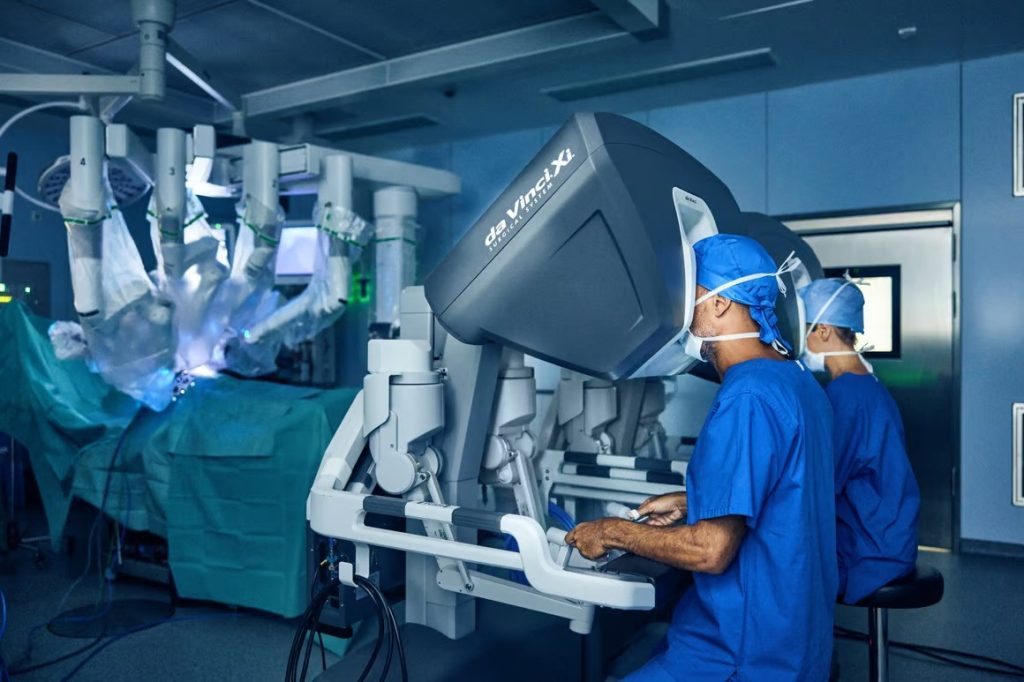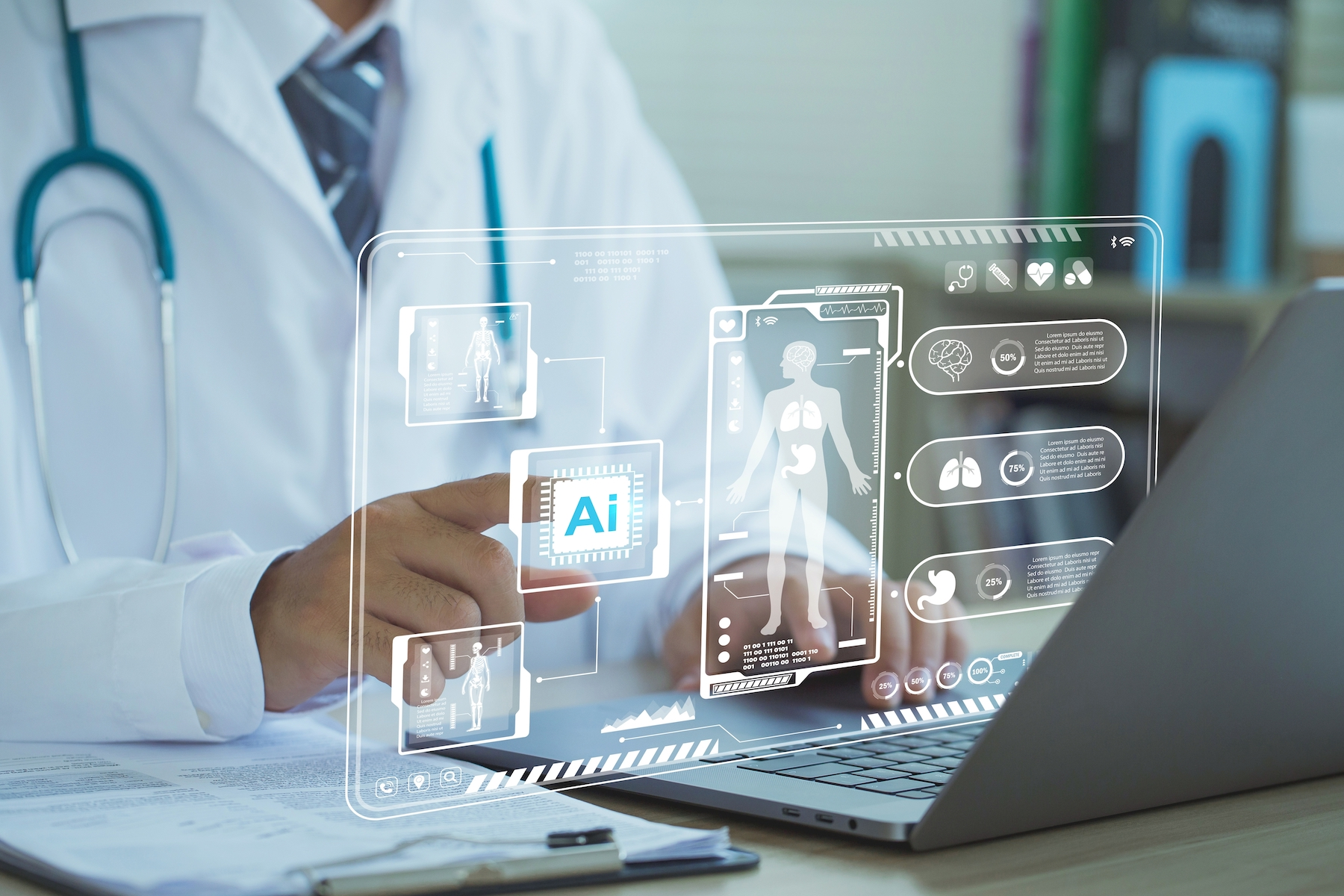How Artificial Intelligence is Revolutionising Medicine
Introduction
Artificial Intelligence (AI) is reshaping the landscape of medicine, introducing unprecedented precision, efficiency, and personalization to healthcare. From diagnosing complex conditions to optimizing treatment plans and streamlining operations, AI’s transformative potential is vast. This article delves into AI’s evolution, current applications, benefits, challenges, and the promising future it holds for medicine.
The Evolution of AI in Medicine
The integration of AI into healthcare has evolved significantly:
- Early Foundations: AI systems like MYCIN (1970s) assisted in diagnosing bacterial infections.
- Modern Advancements: Machine learning and deep learning models now analyze vast datasets, enabling sophisticated applications like medical imaging analysis and personalized treatments.
- Accelerated Growth: The convergence of big data, computational power, and advancements in algorithms has propelled AI into mainstream healthcare.
Current Applications of AI in Medicine
1. Diagnostics and Imaging
AI enhances diagnostic accuracy by analyzing medical images with unparalleled precision:
- Google’s LYNA identifies metastatic breast cancer in lymph nodes with high accuracy.
- Deep Learning Algorithms detect anomalies in MRIs, CT scans, and X-rays, often outperforming human radiologists.
2. Clinical Decision Support
AI systems provide healthcare professionals with actionable insights:
- Tools analyze medical literature and patient data, helping doctors tailor treatment plans.
- AI assists in managing complex conditions like sepsis with predictive analytics.
3. Predictive Analytics
AI identifies health risks early:
- Sepsis Detection: AI predicts severe cases with 75% accuracy.
- Cardiovascular Medicine: AI models classify heart disease with 93% accuracy.
4. Drug Discovery
AI accelerates drug research:
- AI optimizes clinical trial designs and identifies potential drug candidates faster than traditional methods.
5. Personalized Medicine
AI enables individualized care:
- Genetic analysis and AI-driven tools create tailored therapies, particularly in oncology.
6. Administrative Efficiency
AI reduces workloads:
- Automates scheduling, data entry, and claims processing, minimizing human error.
7. Remote Monitoring and Telemedicine
AI-powered apps and wearable devices facilitate remote patient monitoring:
- Predict disease outbreaks and track vital signs in real time.
The Benefits of AI in Medicine
Enhanced Diagnostic Accuracy
AI systems reduce errors and improve precision:
- AI reduces false positives in mammograms by 25%.
- Algorithms detect subtle patterns in imaging data often missed by humans.
Cost Efficiency
AI minimizes healthcare costs by:
- Streamlining administrative workflows.
- Reducing unnecessary tests and hospital readmissions.
Improved Patient Outcomes
AI-driven solutions personalize treatments, ensuring better adherence and fewer side effects:
- Virtual health assistants enhance engagement by providing 24/7 support.
Global Accessibility
AI bridges healthcare gaps in underserved areas:
- Enables telemedicine and remote diagnostics in regions lacking medical infrastructure.
Challenges and Ethical Considerations
1. Data Privacy and Security
AI systems must protect sensitive patient data with robust encryption and secure sharing protocols.
2. Bias in AI Algorithms
Training data must represent diverse populations to avoid skewed outcomes.
3. Integration with Current Systems
Healthcare providers face challenges integrating AI with existing infrastructure.
4. Transparency and Accountability
AI decision-making processes need clarity to build trust among patients and clinicians.
Future of AI in Medicine
1. Predictive Genomics
AI will advance genetic research, identifying risks for hereditary diseases early.

2. Robotics in Surgery
AI-integrated surgical robots will enhance precision and reduce recovery times.
3. Emerging Technologies
The combination of AI, IoT, and blockchain will ensure secure, real-time health monitoring and data management.
Expert Insights
Dr. Jane Smith, an AI researcher at the University of Cambridge, emphasizes,
“AI has the potential to revolutionize medicine by addressing inefficiencies and personalizing care. However, we must remain vigilant about ethical considerations to ensure equitable access and unbiased outcomes.”

Real-World Example: PatientNotes.ai
PatientNotes.ai exemplifies AI’s potential by streamlining medical documentation. This app listens to doctor-patient interactions, transcribes them, and generates detailed medical reports within minutes. By reducing administrative burdens, it allows doctors to focus on patient care, saving hours each day.
Conclusion
Artificial Intelligence is revolutionizing medicine, driving advancements in diagnostics, personalized treatments, and operational efficiency. By integrating AI responsibly and addressing challenges like data privacy and bias, the healthcare industry can unlock AI’s full potential. As demonstrated by tools like PatientNotes.ai, the collaboration between human expertise and AI capabilities promises a future of enhanced patient care.

Post Comment